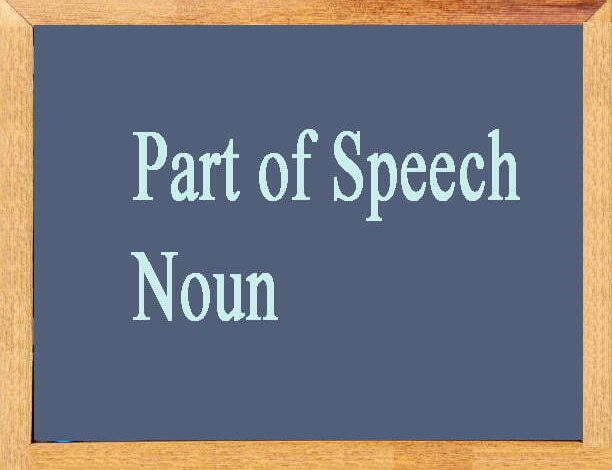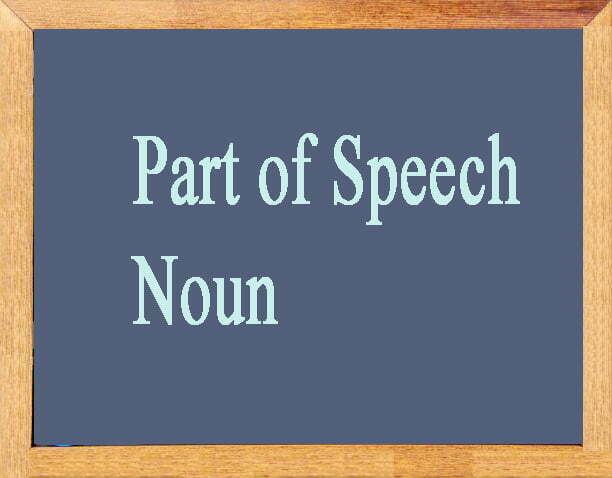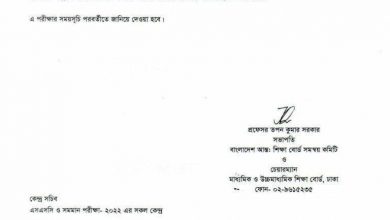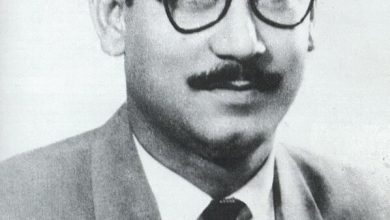Noun

What are nouns?

A noun is a word used as the name of a person, place or thing. There are different kinds of nouns. Read the following sentence:
- Solomon was a wise king.
Here the noun Solomon refers to a particular king, but the noun king may refer to any other king as well. Here Solomon is a proper noun and king is a common noun.
Similarly, Alice is a proper noun and girl is a common noun.
France is a proper noun and country is a common noun.
A proper noun is the name of a particular person or thing. A common noun is a name given in common to every person or thing of the same class or kind.
Note that proper nouns always begin with a capital letter. Common nouns include what are called collective nouns and abstract nouns.
Collective nouns
A collective noun is the name of a collection of persons or things taken together and spoken of as one whole.
Examples are: jury, committee, class, family, team, folk, fleet, nation etc.
An abstract noun is the name of a quality, action or state which we can only think of. Examples are: kindness, goodness, honesty, bravery, ignorance, stupidity, wisdom, laughter etc.
Note that the names of arts and sciences are also considered abstract nouns.
Abstract nouns are formed from adjectives, verbs or common nouns. For example, the abstract noun kindness is formed from the adjective kind whereas the abstract noun obedience is formed from the verb obey.
Countable and uncountable nouns
Nouns are also classified as countable and uncountable. Countable nouns are the names of objects that we can count. Examples are: book, pen, apple, doctor, sister, boy etc. Uncountable nouns are the names of things which we cannot count. Examples are: rice, gold, wheat, honesty, beauty, oil etc.
Note that countable nouns have plural forms and can be used with the indefinite article a/an. Uncountable nouns do not have plural forms and cannot be used with the indefinite articles.
The Noun: Case
Read the following sentence:
- John broke the window.
- The boy killed the spider.
In sentence 1, the noun John is the subject. It is the answer to the question ‘Who broke the window? ‘The group of words ‘broke the window’ is the predicate. The predicate contains the verb broke.
What did John break? – the window. Window is the object which John broke. The noun window is therefore called the object.
In sentence 2, the noun boy is the subject. It is the answer to the question ‘Who killed the spider’. The noun spider is the object. It is the answer to the question ‘Whom/what did the boy kill?’
When a noun or pronoun is used as the subject of the verb it is said to be in the nominative case. When a noun or pronoun is used as the object of the verb, it is said to be in the nominative or accusative case.
Note that to find the nominative, put who? or what? before the verb.
To find the accusative, put whom? or what? before the verb and its subject.
A noun or pronoun which comes after a preposition is also said to be in the objective case.
- The cat is on the roof.
Here the noun roof is in the accusative, governed by the preposition on.
Examine the following sentences.
- John killed the spider.
- The spider was killed by John.
You will have noticed that nouns in English have the same form for the nominative and the accusative. The nominative generally comes before the verb and the accusative generally comes after the verb.
Now read the following sentence:
- This is John’s car.
John’s car means the car belonging to John
Here the form of the noun John is changed to John’s to show ownership or possession. The noun John’s is therefore said to be in the possessive or genitive case.
Formation of plural nouns
The plural noun is generally formed by adding -s to the singular.
Cow (singular), cows (plural)
Boy, boys
Girl, girls
Book, books
Tree, trees
Dog, dogs
Pen, pens
Nouns ending in -s, -sh, -ch or -x form the plural by adding -es to the singular.
Class (singular), classes (plural)
Brush, brushes
Kiss, kisses
Match, matches
Dish, dishes
Most nouns ending in -o also form their plural by adding -es to the singular.
Mango (singular), mangoes (plural)
Hero, heroes
Potato, potatoes
Volcano, volcanoes
Note that a few nouns ending in -o merely add -s.
Dynamo (singular), dynamos (plural)
Piano, pianos
Photo, photos
Logo, logos
Kilo, kilos
Nouns ending in a consonant + y form their plural by changing -y into -i and adding -es.
Baby (singular), babies (plural)
Lady, ladies
City, cities
Story, stories
The following nouns ending in -f or -fe form their plural by changing -f or -fe into v and adding -es.
Thief (singular), thieves (plural)
Wife, wives
Leaf, leaves
Half, halves
Self, selves
Calf, calves
Loaf, loaves
Knife, knives
Elf, elves
Wolf, wolves
Shelf, shelves
Most other nouns ending in -f or -fe add -s.
Chief (singular), chiefs
Gulf, gulfs
Safe, safes
Proof, proofs
A few nouns form their plural by making some changes to inside vowels.
Foot (singular), feet (plural)
Man, men
Woman, women
Tooth, teeth
Mouse, mice
Goose, geese
Some nouns have identical singular and plural forms. Examples are: swine, sheep, deer, cod, salmon, aircraft, spacecraft, series, species etc.
The following nouns are always used in the singular form after numerals: pair, dozen, score, gross, hundred and thousand
- I bought three dozen mangoes. (NOT I bought three dozens mangoes.)
- The music player cost me two hundred dollars.
- He weighs above nine stone.
Note that the plural of fish is fish or fishes. In modern English, fishes is used to talk about different kinds of fish.
Some nouns are used only in the plural. Examples are: bellows, scissors, tongs, spectacles, trousers, drawers, jeans, breeches, tights, shorts etc.
A number of nouns ending in -s are in fact singular. Examples are: mathematics, physics, electronics, news, measles, mumps, rickets, billiards, innings etc.
- Mathematics is his favorite subject.
- No news is good news.
- West Indies won by an innings and three runs.
- Measles is highly contagious.
A few collective nouns, though singular in form, are always used as plurals. Examples are: cattle, poultry, people, gentry etc.
- These poultry are mine. (NOT This poultry is mine. )
- Vermin destroy property and spread disease.
- Who are these people?
The following nouns are always used in the singular. Examples are: luggage, news, advice, information, news, furniture, scenery etc.
- Kashmir is known for its scenery. (NOT Kashmir is known for its sceneries.)
- We have received no information. (NOT …no informations)
- We need to buy some furniture. (NOT …some furnitures.)
Noun: gender
Living beings are of either the male or the female sex. Now compare the following pairs of words.
- Boy, girl
- Man, woman
- Husband, wife
- Lion, lioness
Here the first word of each pair is the name of a male animal. The second word of each pair is the name of a female animal. A noun that denotes a male animal is said to be of the masculine gender. A noun that denotes a female animal is said to be of the feminine gender.
A noun that denotes either a male or a female is said to be of the common gender. Examples are: parent, child, friend, servant, thief, enemy, cousin, student, baby, teacher, writer etc.
A noun that denotes a thing that is neither male nor female is said to be of the neuter gender. Examples are: book, pen, room, house, tree etc.
It is thus seen that in modern English, the gender of a noun is entirely a matter of sex or the absence of it. It has nothing to do with the form of a noun, which determines its gender in many other languages.
Note that inanimate objects are often personified, that is, spoken of as if they were living beings. We then regard them as males or females.
The masculine gender is often applied to lifeless objects known for strength or violence. Examples are: sun, summer, winter, time, death etc.
The feminine gender is often applied to lifeless objects known for beauty or gracefulness. Examples are: moon, earth, spring, autumn, nature, liberty, justice, peace, mercy, hope etc.
Formation of the possessive case
Singular nouns form their possessive case by adding ‘s to the singular.
- The boy’s dog
- My father’s office
Only the apostrophe (‘) without s is added if the noun contains too many hissing sounds.
- For goodness’ sake
- For conscience’ sake
- For Jesus’ sake
- Moses’ laws
Plural nouns ending in -s form their possessive case by adding only an apostrophe.
- Boys’ school
- Girls’ hostel
Plural nouns that do not end in -s, form the possessive case by adding ‘s.
- Children’s books
- Women’s club
Uses of the possessive case
The possessive case is now used chiefly with the names of living things.
- The lion’s mane
- The minister’s bodyguards
- The King’s palace
The possessive case is not normally used with the names of lifeless things; instead, we use a structure with of
- The leg of the table (NOT The table’s leg)
- The cover of the book (NOT The book’s cover)
- The roof of the house (NOT The house’s roof)
Exceptions
The possessive case is often used with the names of personified objects.
- Nature’s laws
- Fortune’s favourites
- At duty’s call
- At wit’s end
The possessive case is also used with nouns denoting time, space and weight.
- In a year’s time
- A day’s work
- At a stone’s throw
- A pound’s weight
The possessive of a proper noun denoting a trade, profession or relationship can often be used to denote a building or place of business.
- She has gone to the baker’s. (= baker’s shop)
- Tonight we are dining at Smith’s (= Smith’s house)
Ways of forming the feminine gender
There are three ways of forming the feminine gender.
1) By using an entirely different word.
- Bachelor (masculine) / spinster or maid (feminine)
- Boy / girl
- Man / woman
- Husband / wife
- Father / mother
- Brother / sister
- Son / daughter
- Horse / mare
- Monk / nun
- Buck / doe
- King / queen
- Cock / hen
- Dog / bitch
- Drake / duck
- Earl / countess
- Gander / geese
- Gentleman / lady
- Nephew / niece
- Uncle / aunt
2) By adding a syllable (-ess, -ine, -trix etc) to the masculine gender
- Author (masculine) / authoress (feminine)
- Baron / baroness
- Count / countess
- Giant / giantess
- Heir / heiress
- Host / hostess
- Lion / lioness
- Mayor / mayoress
- Poet / poetess
- Priest / priestess
In the following -ess is added after dropping the vowel of the masculine ending.
- Actor (masculine) / actress (feminine)
- Enchanter / enchantress
- Duke / duchess
- Emperor / empress
- Prince / princess
- Tiger / tigress
- Waiter / waitress
- Master / mistress
- Sorcerer / sorceress
3) By placing a word before or after
- Grandfather / grandmother
- Manservant / maidservant
- Landlord / landlady
- Peacock / peahen
- Salesman / saleswoman
- Washerman / washerwoman
Notes
A mayor can be a man or a woman. In British English, a mayoress is the wife of a male mayor.
Some words ending in -ess are no longer used. Examples are: authoress and poetess. Author and poet are now used for both men and women. The words steward and stewardess are being replaced by other terms like flight attendant. Note that a flight attendant can be a man or a woman.
Countable nouns
Countable nouns are the names of objects, people and places that can be counted. Examples are: flower, boy, apple, book, tree, room, house, window etc.
Countable nouns have singular and plural forms and can be used with indefinite articles (a / an) and numbers. Generally, a singular countable noun always takes an article or another determiner with it.
- I saw a boy in the store. (BUT NOT I saw boy in store.)
- The child was playing with his toy. (BUT NOT Child was playing with toy.)
A plural noun can be used with or without an article.
- Children were playing in the park. (This style is preferred when you don’t expect the listener to know which children you are talking about.)
- OR The children were playing in the park. (This style is preferred when you are talking about children who have already been mentioned.)
Uncountable nouns refer to objects or ideas that cannot be counted. Examples are: rice, sand, milk, honey, honesty, integrity etc.
Uncountable nouns cannot be used with numbers. It is also not possible to use the articles a / an with uncountable nouns.
Uncountable nouns are always singular and should be used with a singular verb.
- Honesty is the best policy. (NOT Honesty are the best policy.)
- Rice is the staple food of Indians. (NOT Rice are the staple food of Indians.)
Note that some nouns which are countable in one language can be uncountable in another language. For example, the word grapes is a plural countable noun in English. However, it is uncountable in many other languages.
Nouns that exist only in the singular or plural form
In English, there are several nouns that exist only in the plural form. Except for a few, they all end in –s.
Examples are:
- Amends (to make ‘amends’ for causing some loss)
- Annals (pages of books of history)
- Archives
- Arms (weapons)
- Arrears
- Ashes (of a dead cremated body)
- Auspices (patronage)
- Bowels
- Brains (intellect)
- Contents
- Customs (duty)
- Earnings
- Entrails
- Fireworks
- Funds (money)
- Goods
- Guts (bowels, courage)
- Letters (in the expression ‘a man of letters’)
- Looks (e.g. She has got attractive looks)
- Manners (in the expression ‘good manners’)
- Odds (in the expression ‘heavy odds’)
- Outskirts
- Pains (e.g. to take pains)
- Premises (building)
- Riches (wealth)
- Stairs (e.g. a flight of stairs)
- Surroundings (environment)
- Thanks
- Troops
- Tropics
- Valuables
- Wages
- Proceeds
- Tidings
- Nuptials
- Alms
- Drawers
The following are unmarked plurals which do not end in –s. Examples are: cattle and plural.
Some words ending in –s do not change in the plural. Examples are:
- Barracks
- Crossroads
- Headquarters
- Means
- Series
- Species
- Works (= factory)
- Swiss
Special cases
Some singular uncountable nouns end in –s. They have no plural forms. Examples are: news, billiards, draughts, measles etc.
- Measles is highly contagious.
Most words ending in –ics are also usually singular uncountables and have no plurals. Examples are: mathematics, physics, athletics, politics.
- Politics is a dirty game.
- Mathematics isn’t the easiest of all subjects.
Other nouns which do not change in the plural are craft, sheep, fish and deer.
Plural uncountable nouns
Most uncountable nouns are singular in number. Therefore, we use the singular form of the verb with them.
- Don’t hurry – there is plenty of time. (NOT There are plenty of time.)
- Practice makes the man perfect. (NOT Practice make the man perfect.)
Uncountable nouns are often treated as countables if we are talking about different kinds of material, liquid etc.
- Most washing powders are not very kind to your hands.
Although powder is an uncountable noun, here we are talking about different kinds of the material.
Abstract nouns are usually uncountable. Some abstract nouns can have both countable and uncountable uses. When used with a general meaning, these nouns are usually uncountable. When used with a particular meaning, these nouns are usually countable.
- We had a nice time when we went to the beach yesterday. (countable)
- I couldn’t finish the report because I didn’t get enough time. (uncountable)
Plural uncountables
Some uncountable nouns are plural. They have no singular forms with the same meaning, and cannot be used with numbers. Common examples are: groceries, arms, remains, goods, customs, clothes, thanks, regards, police etc.
- The police are searching for a white man in his twenties.
- Have you bought the groceries? (NOT Have you bought the grocery?)
- Many thanks for your help.
Other plural uncountable nouns include trousers, jeans, pyjamas, pants, scissors, spectacles etc.
Common mistakes in the use of uncountable nouns
Read the following sentences.
- The sceneries here are not good.
- The scenery here is not good.
Which of the two sentences is the correct one?
The word scenery is uncountable in English. It may be countable in some other languages. However, in English, we can’t say sceneries or a scenery.
As you know, uncountable nouns do not have plural forms and they cannot be used with numbers or the article a/an. And hence the sentence ‘The sceneries here are not good’, isn’t correct.
More examples are given below.
- Incorrect: They have got lots of furnitures.
- Correct: They have got lots of furniture.
- Incorrect: We have received no informations about the accident.
- Correct: We have received no information about the accident.
- Incorrect: I heard these news in the morning.
- Correct: I heard this news in the morning.
- Incorrect: He asked me to pack my luggages.
- Correct: He asked me to pack my luggage.
The nouns information, furniture, news, luggage etc., are uncountable.
- Incorrect: Please excuse the troubles.
- Correct: Please excuse me for the trouble.
The word trouble is mainly used as an uncountable noun. It doesn’t usually have a plural form.
Also the word excuse should be followed by an indirect object.
However, the plural form troubles can be used to refer to all the problems that a person has. In this case, it is usually preceded by a possessive.
All of us have our troubles and we must find ways to deal with them.
- Incorrect: He provided the blinds with food.
- Correct: He provided the blind with food.
The expressions ‘the blind’, ‘the deaf’, ‘the unemployed’, ‘the dead’, ‘the poor’ etc., are plural. ‘The blind’ means all blind people. We can’t say ‘the blinds’ or ‘the deafs’.
Rules regarding the formation of plurals
In English, we form the plurals of nouns by adding –s to the singular. Examples are given below.
Boy -> boys
Girl -> girls
Book -> books
There are several exceptions to this rule. Nouns ending in –s, -sh, -ch and –x, form their plurals by adding –es to the singular.
Examples are:
Box -> boxes
Class -> classes
Branch -> branches
Brush -> brushes
Watch -> watches
Most nouns ending in –o, generally form their plurals by adding –es.
Examples are:
Mango -> mangoes
Hero -> heroes
Potato -> potatoes
Volcano -> volcanoes
Some singular nouns ending in –o, form their plurals by simply adding –s.
Examples are:
Piano -> pianos
Photo -> photos
Stereo -> stereos
Dynamo -> dynamos
Nouns ending in a consonant + -y, form their plurals by changing that –y into –i and adding –es.
Baby -> babies
Lady -> ladies
City -> cities
Story -> stories
Most nouns ending in –f or –fe form their plurals by changing –f or –fe into v and adding –es.
Leaf -> leaves
Life -> lives
Thief -> thieves
Knife -> knives
There are several exceptions to this rule and the following nouns form their plurals by simply adding –s.
Examples
Roof -> roofs
Proof -> proofs
Dwarf -> dwarfs
Belief -> beliefs
A few nouns form their plurals irregularly. Examples are given below.
Man -> men
Woman -> women
Tooth -> teeth
Mouse -> mice
Some nouns have the singular and the plural alike. Examples are: swine, sheep, deer
The nouns dozen, score, pair, hundred and thousand do not have a plural form when they are used after a number.
The car cost me five thousand dollars. (NOT … five thousands dollars)
Abstract nouns
An abstract noun is the name of a quality, action or state. Abstract nouns refer to ideas that we cannot see or touch.
Examples are given below.
Quality – goodness, kindness, beauty, intelligence, generosity, cleverness, obedience, honesty, brightness, wisdom, bravery, courage, hardness, softness
Action – laughter, theft, movement, judgment
State – childhood, boyhood, manhood, youth, slavery, sickness, poverty, death, sleep
The names of the arts and science are also abstract nouns. Examples are: physics, chemistry, grammar, music
Abstract nouns can be formed from adjectives, verbs and common nouns.
From adjectives
Kindness from kind
Bravery from brave
Illness from ill
Honesty from honest
From verbs
Obedience from obey
Growth from grow
Pleasure from please
From common nouns
Childhood from child
Slavery from slave
Exercise
Form abstract nouns from the following adjectives.
1. Long ————————–
2. Strong ————————–
3. Wide ————————–
4. Young ————————–
5. Humble ————————–
6. Decent ————————–
7. Cruel ————————–
8. Bitter ————————–
9. Prudent ————————–
10. Dark ————————–
11. Wise ————————–
12. Good ————————–
13. Vacant ————————–
14. Sweet ————————–
15. Human ————————–
16. Free ————————–
17. Proud ————————–
18. Brave ————————–
19. Novel ————————–
20. Poor ————————–
21. Just ————————–
22. Vain ————————–
23. Sane ————————–
24. Ignorant ————————–
Answers
1. Long -> length
2. Strong -> strength
3. Wide -> width
4. Young -> youth
5. Humble -> humility
6. Decent -> decency
7. Cruel -> cruelty
8. Bitter -> bitterness
9. Prudent -> prudence
10. Dark -> darkness
11. Wise -> wisdom
12. Good -> goodness
13. Vacant -> vacancy
14. Sweet -> sweetness
15. Human -> humanity
16. Free -> freedom
17. Proud -> pride
18. Brave -> bravery
19. Novel -> novelty
20. Poor -> poverty
21. Just -> justice
22. Vain -> vanity
23. Sane -> sanity
24. Ignorant -> ignorance
Noun phrases exercise
A noun phrase is a group of words that serves the same purpose as a noun. A noun phrase can be the subject or object of a verb. It can also be the object of a preposition.
Identify the noun clauses in the following sentences.
1. I hope to win the first prize.
2. I tried to solve the puzzle.
3. Did you enjoy reading this book?
4. The boy wants to go home.
5. Horses prefer living in dark stables.
6. The accused refused to answer the question.
7. The boy denied stealing the money.
8. To write such rubbish is disgraceful.
9. I dislike having to punish my kids.
10. I will hate to do such a thing.
Answers
1. Noun phrase: to win the first prize; it acts as the object of the verb hope
2. Noun phrase: to solve the puzzle; it acts as the object of the verb tried
3. Noun phrase: reading this book; it acts as the object of the verb enjoy
4. Noun phrase: to go home; it acts as the object of the verb wants
5. Noun phrase: living in dark stables; it acts as the object of the verb prefer
6. Noun phrase: to answer the question; it acts as the object of the verb refused
7. Noun phrase: stealing the money; it acts as the object of the verb denied
8. Noun phrase: to write such rubbish; it acts as the subject of the verb is.
9. Noun phrase: having to punish my kids; it acts as the object of the verb dislike.
10. Noun phrase: to do such a thing; it acts as the object of the verb hate.
Common mistakes in the use of nouns
In this lesson, we will take a look at some common mistakes in the use of nouns.
Incorrect: There is no place on this bus.
Correct: There is no room on this bus.
Incorrect: I am learning a new poetry.
Correct: I am learning a new poem.
Poetry means poems collectively.
Incorrect: He is leaving his service.
Correct: He is leaving his job.
Incorrect: All of my relations are poor.
Correct: All of my relatives are poor.
Incorrect: The clock has struck five hours.
Correct: The clock has struck five.
Incorrect: The boarding is full.
Correct: The boarding house is full.
Incorrect: I saw two females in the store.
Correct: I saw two women in the store.
Incorrect: He enquired about your state of health.
Correct: He enquired about the state of your health.
Incorrect: My English is very weak.
Correct: I am very weak in English.
Incorrect: The weather of Chennai does not suit me.
Correct: The climate of Chennai does not suit me.
Incorrect: Why are you standing in the center of the street?
Correct: Why are you standing in the middle of the street?
Incorrect: I visit them once in a week.
Correct: I visit them once a week.
Incorrect: Her hairs are grey.
Correct: Her hair is grey.
Incorrect: I bought two dozens pencils.
Correct: I bought two dozen pencils.
Incorrect: He took insult at this.
Correct: He took offence at this.
Incorrect: He put your sign here.
Correct: He put your signature here.
Singular and Plural Exercise
Most nouns form their plurals by adding -s to the singular. However, there are some nouns that have only a plural form or a singular form. Plural nouns should be followed by a plural verb and singular nouns should be followed by a singular verb.
Fill in the blanks.
1. I think they teach ………………… . mathematics in schools.
too much
too many
2. Politics ………………… . a complicated business.
is
are
3. ………………….. suffering from a disease called BSE.
Many cattle are
Much cattle is
4. The police ………………… the thief.
have arrested
has arrested
5. Where ……………….. my glasses?
are
is
6. The organization is trying to raise ……………… to support its projects.
fund
funds
7. A number of people ………………… tried to find the treasure.
has
have
8. A group of us …………….. going to hold a party tomorrow.
is
are
9. Half of her students ……………… understand a word she says.
doesn’t
don’t
Either could be used here
10. Ten miles ………………. a long way to walk.
is
are
Either could be used here
11. One of my friends …………….. going to Mexico.
is
are
12. Nobody ……………….. him except his best friends.
like
likes
Either could be used here
Answers
1. I think they teach too much mathematics in schools.
2. Politics is a complicated business.
3. Many cattle are suffering from a disease called BSE.
4. The police have arrested the thief.
5. Where are my glasses?
6. The organization is trying to raise funds to support its projects.
7. A number of people have tried to find the treasure.
8. A group of us are going to hold a party tomorrow.
9. Half of her students don’t understand a word she says.
10. Ten miles is a long way to walk.
11. One of my friends is going to Mexico.
12. Nobody likes him except his best friends.
Singular And Plural Nouns
Some nouns have the singular and the plural alike. Some have no singular forms; likewise, some nouns have no plural forms. Test your understanding of singular and plural nouns with this grammar exercise.
Fill in the blanks.
1. He weighs nine ……………………….
stone
stones
Either could be used here
2. That car cost me five ……………………… dollars.
thousand
thousands
3. I bought three ……………………… oranges.
dozen
dozens
4. India won by …………………………. and three runs.
innings
an inning
an innings
5. His ………………………… small but he has no debt.
mean is
means is
means are
6. ……………………….. not only destroy our property but also carry disease.
Vermin
Vermins
7. The ………………………….. needs repairs.
house roof
house’s roof
roof of the house
8. He has no ……………………….. for his parents.
Please select 2 correct answers
respect
respects
9. Both countries have withdrawn their ………………………..
force
forces
10. Why are you always putting on ……………………….?
air
airs
11. We must all stand up for the common ……………………
Please select 2 correct answers
good
goods
12. He wouldn’t listen to my ………………………
advice
advices
advise
Answers
1. He weighs nine stone.
2. That car cost me five thousand dollars.
3. I bought three dozen oranges.
4. India won by an innings and three runs.
5. His means are small but he has no debt.
6. Vermin not only destroy our property but also carry disease.
7. The roof of the house needs repairs.
8. He has no respect for his parents.
9. Both countries have withdrawn their forces.
10. Why are you always putting on airs?
11. We must all stand up for the common good.
12. He wouldn’t listen to my advice.






